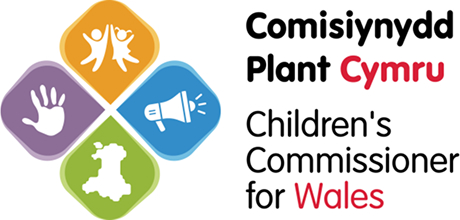8 July 2020
Responding to the announcement of the Curriculum and Assessment (Wales) Bill, the Children’s Commissioner for Wales, Professor Sally Holland, says:
This Bill is an important milestone. It sets out the commitments that our nation is making to all children and young people about their experience of education. It is a promise to each child in Wales.
Underpinning this promise must be a stronger commitment to improving the lives of children. This Bill aims to give children a broad and exciting range of opportunities to develop their talents and skills to the full but it must safeguard children’s needs and best interests throughout their education.
I therefore strongly welcome the inclusion of Health and Wellbeing as an area of learning and experience. This is one of many aspects of the Bill that reflects a reform process that has been inclusive of the education profession in Wales and that has shown a commitment to the holistic development of children.
I also applaud the Government’s intention that legislation will require all children to receive developmentally appropriate Relationships and Sexuality education. This is an important measure to safeguard the welfare and rights of all young people in Wales.
But there are two immediate ways this Bill must be improved:
- First, a due regard duty to the United Nations Convention on the Rights of the Child (UNCRC) must be included on the Curriculum and Assessment Bill. I am profoundly disappointed that Government have not responded to my repeated calls for the inclusion of this duty, which will safeguard the long-term needs of children and endure beyond any changes made to the Curriculum documentation that sits beneath the Bill;
- Second, this Bill needs to go further to protect the wellbeing of children by including a requirement for a whole school approach to wellbeing and mental health in the legislation.
There are also key areas for additional scrutiny. The Bill does not introduce any new methods for evaluation and improvement of schools’ practices. I am concerned that the existing method of evaluating schools’ performance has led to developments such as ‘off rolling’ pupils from school registers and the development of an exam driven environment in which young people that need additional support can feel ignored. This is why the duty of due regard to the UNCRC is so vital; a children’s rights based approach to evaluating and improving schools is not compatible with these practices.
The Bill proposes that some children may only study some of the new curriculum. This will need careful scrutiny to ensure this Bill provides relevant and equitable entitlements for all children, including those with Additional Learning Needs, and those educated other than at school.
Getting this Bill right is essential as although some schools in Wales lead excellent work embedding the human rights and wellbeing of children into everything they do, this is not the experience of every child. In addition to off-rolling and an over-emphasis on examination, children in Wales can experience isolation, discrimination, a lack of participation and insufficient support for their wellbeing. Children’s human rights and experiences of education should not be left to chance in this way.
I will continue to push for these important safeguards for the human rights and wellbeing of children in my ongoing scrutiny of the Bill and will be providing a full response to the Stage 1 inquiry.

